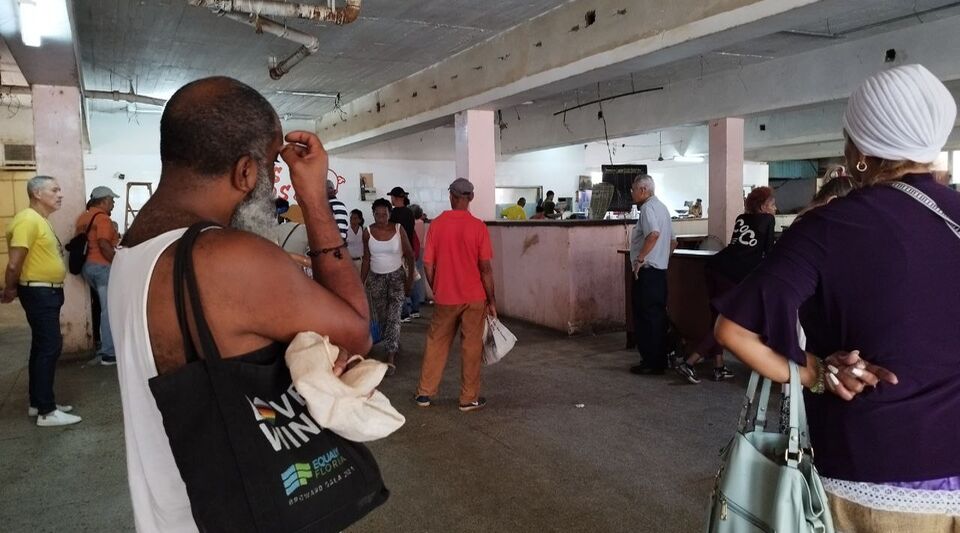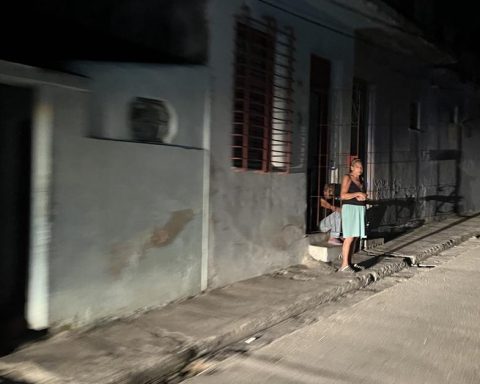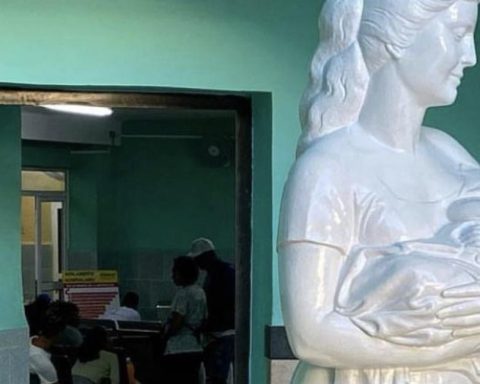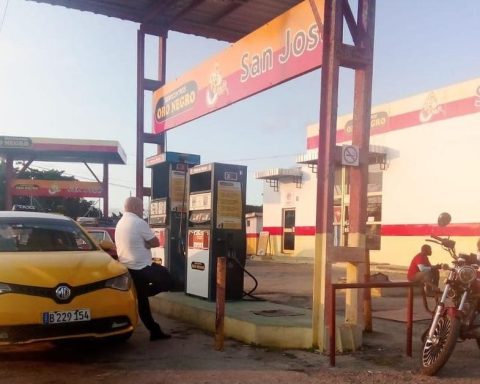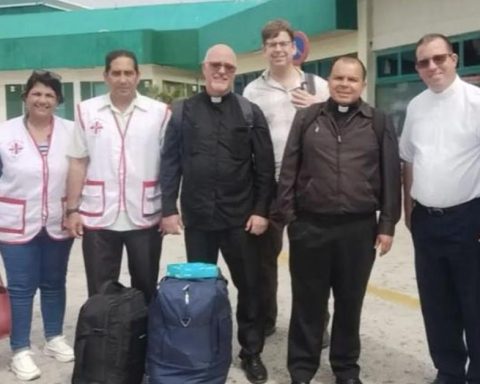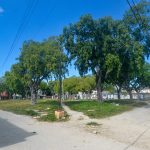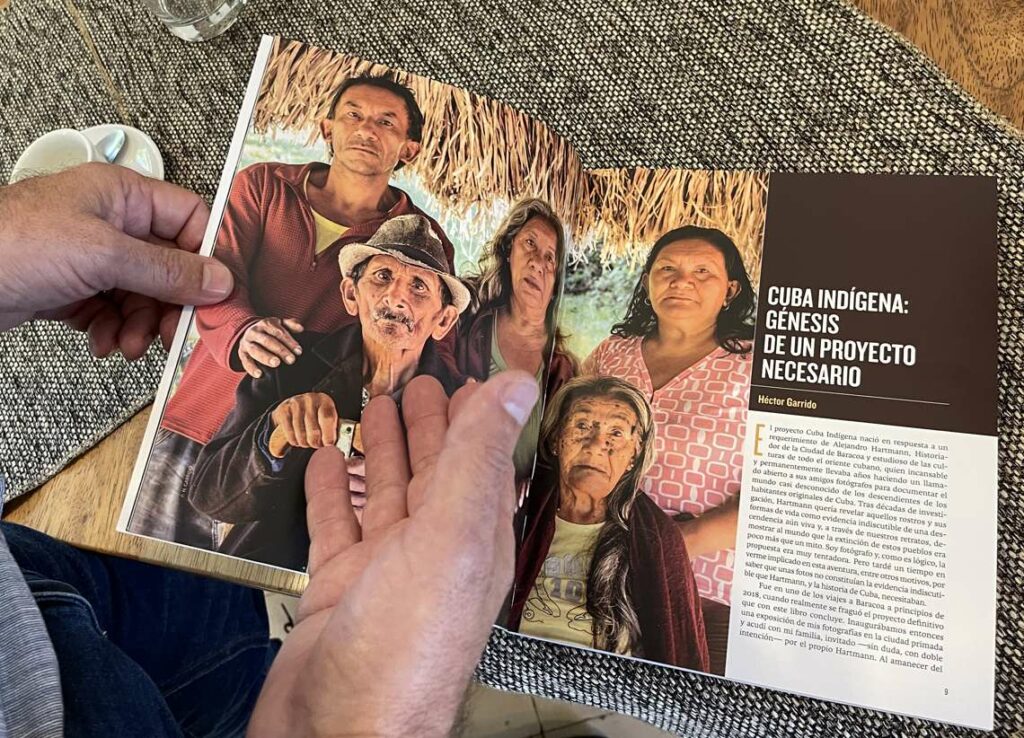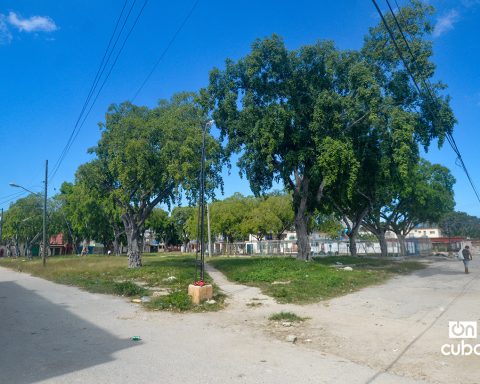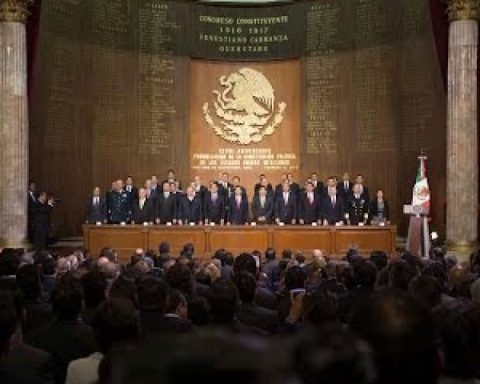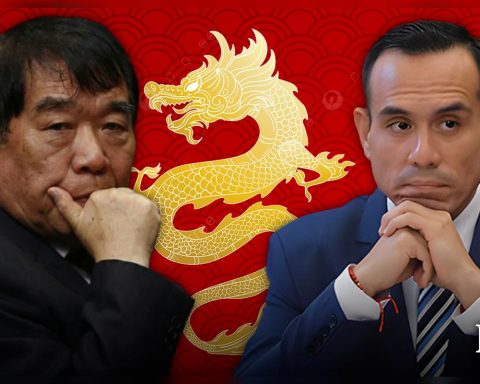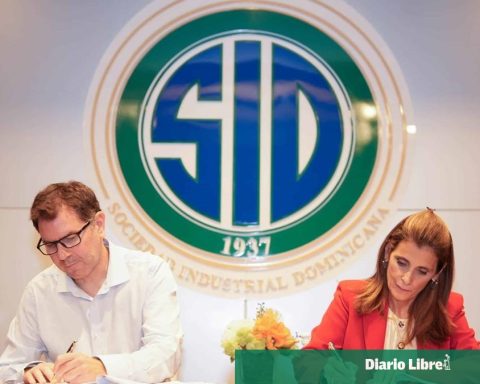The plague comes from the bottom of the butcher shop, from the bundle of pork that the clerks handle with sweaty hands. As he approaches the counter, having survived being shoved and yelled at by the tail, Carlos discovers that the stench comes from the reddish suet that mires the floor.
The transaction is short-lived. The butcher sets his hooks and knives on the mass of smelly meat, weighs it – always with traps, but even the Cuban gets used to traps – and throws it inside the jaba. The manipulation of the scale does not seem to matter to the policeman who watches over the buyers and who, at the end of the day, will be paid for his “indifference” in kind.
The smell is just the beginning of the odyssey to have a bit of fiber to put on the family table during the New Year holidays.
The smell is just the beginning of the odyssey to have a bit of fiber to put on the family table during the New Year holidays
The meat you just bought is old, gray, almost greenish. Fat, cartilage and bone predominate. Its texture is perhaps the most unpleasant, typical of pork that has not been well refrigerated and that, when it begins to thaw, becomes slimy to the touch.
In bad timing, Carlos thinks, he paid attention to the clerks who were shouting on the outskirts of the butcher shop. “Make the effort and buy now,” they said this Thursday, “this is what is left and tomorrow is going to be worse.” There were people, more awake, who preferred to stay without buying anything.
The meat that the government put up for sale for the end-of-year celebrations is, according to the diagnosis of Havana housewives, “lack of cold” and it is impossible to remove the bad smell, even by frying it in burning butter.
The conspiracy theorists in the neighborhood have already launched their explanation: in the absence of a recent product, the government put its mysterious “war reserve” up for sale, the secret food arsenal that has always been attributed to the regime. It is not a pork that has been frozen in a refrigerator, hanging from a hook, but in little refrigerated warehouses, one piece on top of another. For this reason, they say, the meat is “crushed” and has an “ugly” color.
Chicharrones, masitas or some roasted ribs have always been part of the Cuban New Year’s festivities, even more than little trees and cider. The latter, the official hatred for the Christmas festivities has made them disappear and appear from homes, but pork meat had remained a constant despite the fact that every December of the last decade its price has risen significantly.
In private markets, a pound of steak or leg is close to 500 Cuban pesos but, as the month progresses and Christmas Eve approaches, the product’s presence decreases
In private markets, a pound of steak or leg is close to 500 Cuban pesos, but as the month progresses and Christmas Eve approaches, the product’s presence decreases. Hence, the official announcement was received with relief that the product would begin to be sold in the city of Havana in a “limited, controlled release” manner, upon presentation of the ration book.
Silvia, Xiomara and María Eugenia have agreed. Between the three of them they will buy a piece of pork that costs about 7,500 pesos. It is a leg that will be divided for dinner on December 24 for their corresponding families. “We’re just going to buy one because no one has the money for the piece that belongs to the core of it,” María Eugenia clarifies.
Since last Sunday, alerted that the sales would begin this Wednesday, the three retirees began the queue at the butcher shop on Ermita y Conill street, in the municipality of Plaza de la Revolución. Since then they have alternated the hours in line and they hope that the time to enter the establishment will arrive this Friday after noon. “We have about 80 people ahead of us and sales are going very slowly.”
The slowness is not due to the fact that the piece of meat has to be cut, since the customer must purchase the complete piece, an obligation that has made many people give up who do not have the thousands of pesos that any leg costs at a price of 250 pesos per pound. “They weighed me a medium and it came out at 6,800 pesos so I had to buy it with a neighbor,” warns a nearby resident who entered “among the first” because she started the queue last Saturday. He attributes the delay to “all the paperwork you have to go through before you buy.”
According to the woman, it is pork meat “with a lot of fat”, it comes unpackaged for what she assumes is from Cuban pigs, but the employees could not tell her if it was imported or from national farms. “The store has refrigeration problems and when I bought the leg I ran home to put it in the freezer because otherwise it wouldn’t make it to the end of the year”.
In other municipalities, such as Arroyo Naranjo, the residents have improvised real camps outside the butcher shops to get a piece of meat
In other municipalities, such as Arroyo Naranjo, the residents have improvised real camps outside the butcher shops to get a piece of meat, since it has been known that it is not enough for all the households registered in the city’s rationed market. On social networks, some of them have shared photos of people wrapped in blankets or drinking rum to warm up in the cool early morning of this December.
“I hope that the piece that touches me is tenderloin, which is worth 235 pesos a pound and comes with some ribs that my children love fried,” commented a resident of El Vedado this Thursday who is responsible for buying at the local from 17th and K Street. “You can always convince someone else in line to take your piece if you don’t like it and he prefers it that way.”
However, the man fears that the meat that should prop up the holidays could also become a matter of contention. “Those who are buying legs for three houses are not going to be able to separate until everything is cut in front of their eyes, because otherwise there will be a bandage due to a little extra padding that goes to one or a few doughnuts above that take another other”.
________________________
Collaborate with our work:
The team of 14ymedio He is committed to doing serious journalism that reflects the reality of deep Cuba. Thank you for accompanying us on this long road. We invite you to continue supporting us, but this time becoming a member of our newspaper. Together we can continue transforming journalism in Cuba.
